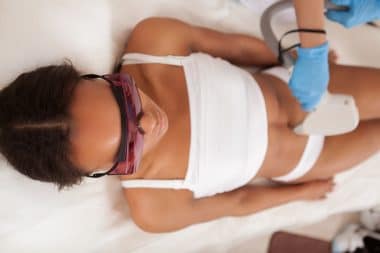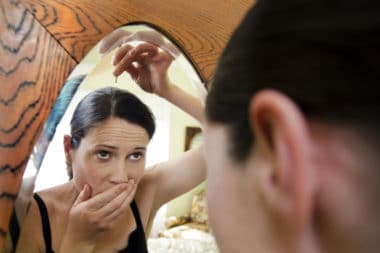Every man is concerned about the possibility of hair loss. The fact is that some causes of hair loss can be addressed and treated. You don’t necessarily have to put up with hair loss for the rest of your life. The following is a list of the causes of hair loss.
Telogen Effluvium
Telogen effluvium is hair loss caused by physical or emotional stress. It disrupts your hair’s normal growth cycle. Your hair goes through a stage of active growth. This is called the anagen phase. This can last for up to three years. The telogen phase of growth occurs when your hair rests. This stage can last for up to four months. Telogen effluvium happens when more hairs than normal get placed in the resting phase. This is more common in women than in men.
Certain emotional and physical issues can be responsible for telogen effluvium. The death of a loved one might be the cause or perhaps some other emotional distress. It can also be the result of abrupt weight loss, elevated fever, nutritional deficiencies, surgery, or other physical stresses.
Hair that you lose because of stress grows back. However, it can take a number of months to do so.
Telogen effluvium can also be the result of pregnancy. This affects somewhere between 40 to 50 percent of women. This hair loss usually occurs after delivery.
Excess Vitamin A and Hair Loss
Vitamin A is crucial for many functions of the body. This includes healthy hair growth. However, vitamin A is fat-soluble. So, your body stores any excess that you take in. This can lead to toxicity and resulting hair loss.
Taking in high amounts of vitamin A can lead to hair loss. The most that you should take is 10,000 IU per day. Anything higher than this can result in toxicity. Other symptoms of vitamin A toxicity include dry skin and eyes, nausea, and diarrhea. Through diet alone, it is hard to overdose on vitamin A. The problem occurs only when you take supplements. You should always discuss any supplements that you wish to take with your doctor.
Iron Deficiency
Iron deficiency hair loss is caused by the body not having enough iron to produce hemoglobin in the blood. Hemoglobin is the ingredient that bears oxygen for the growth and repair of bodily cells, including the cells that make up hair follicles.
If your doctor diagnoses iron deficiency, you can eat more iron-rich foods or take an iron supplement. Foods that are rich in iron include red meat, such as beef and liver. Other good sources are chicken, pork, fish, and shellfish. Research has found that the body absorbs iron better from animal sources than from vegetarian sources. Also, vitamin C helps the body absorb iron. Sources of vitamin C include red peppers, strawberries, spinach, and citrus fruits.
Protein Deficiency
Hair loss can be occasionally caused by a lack of protein in your diet. Sometimes, special diets that exclude protein can cause a protein deficiency. When this occurs, the body might help save its protein by shifting growing hairs into the resting phase. A rise in hair shedding can happen a few months later.
This condition can be reversed by adding the proper amount of protein to the diet. Adults must get two to three servings of protein every day. Foods with protein include meat, chicken, beans, tofu, grains, and nuts.
Male Pattern Baldness
Male pattern baldness accounts for more than 95 percent of hair loss in men. At age 35, two-thirds of American men will have some significant amount of hair loss.
Male pattern baldness is also known as androgenetic alopecia. Men with male pattern baldness inherit hair follicles with a genetic sensitivity to dihydrotestosterone. Hair follicles that are sensitive to DHT begin to shrink. This shortens the lifespan of each affected hair follicle. Ultimately, the follicles stop producing good hair.
Male pattern baldness typically begins with a receding hairline and thinning crown. The hair in these areas seems to be the most sensitive to DHT. This hair loss eventually progresses into greater baldness throughout the entire top of the scalp. All that is left is a horseshoe pattern of hair. Some men even lose this horseshoe of hair.
Thyroid and Hair Loss
Thyroid problems include both an underactive thyroid gland and an overactive thyroid gland. Abnormal levels of thyroid hormone can result in changes in hair. When there is too much thyroid hormone, your hair can become fine, with thinning hair all over the scalp. When there is too little of the hormone, there can be hair loss. This occurs not only on the scalp but also anywhere on the body.
Once you get your thyroid disease diagnosed and treated, the hair loss should resolve itself.
Autoimmune Diseases
Alopecia areata is an autoimmune disease caused by the body’s immune system attacking the hair follicles. When white blood cells attack hair follicles, they interrupt hair growth. This results in small round patches of hair loss. In addition to loss of hair on the scalp, this condition can cause loss of hair on other areas of the body.
Lupus is another chronic autoimmune disease. It can cause hair loss. Hashimoto’s disease is also another immune system disease that can cause hair loss.
Polycystic Ovary Syndrome
Polycystic ovary syndrome can cause hyperandrogenism. This is where the body produces too many androgens. Androgens are naturally part of a woman’s body. They affect the degree and frequency of bleeding during the menstrual cycle and cause acne and oily skin. However, if your hair is sensitive to androgens, it can decrease the growth of hair on the scalp and increase the growth of hair elsewhere on the body.
Chemotherapy
Chemotherapy drugs are strong medications that attack the cancer cells that are attacking your body. At the same time, these drugs attack other cells in your body. These include those in your hair roots. Chemotherapy can cause hair loss in many places on the body. Some chemotherapy drugs are more likely than others to cause hair loss. Different doses of the drugs can cause light hair loss to complete baldness.
Fortunately, most hair loss from chemotherapy is temporary. Your hair will probably start growing back three to six months after your treatment ends. Your hair may temporarily be a different shade or texture, though.
Your hair will usually begin falling out two to four weeks after you begin treatment. The hair loss may be gradual, or your hair may fall out in clumps. The hair loss will continue throughout the treatment and up to a few weeks afterwards.
Vitamin B Deficiency
Vitamin B-12 is one of the B-complex vitamins. A vitamin B-12 deficiency can cause hair loss. Many parts of the body need vitamin B-12. These include the liver, eyes, skin, and hair. Hair loss can occur because cells need to divide frequently to produce new hair. If you don’t have enough B-12, then hair growth slows or stops, and existing hair starts to fall out.
Aging
Almost everyone has some hair loss with aging. The rate of hair growth also slows with age. Hair strands tend to become smaller and have less pigment. Many hair follicles stop producing new hairs. As you age, your body and face also lose hair. Men may grow longer and coarser eyebrow, ear, and nose hair.
Antidepressants
Certain medications you take may be the cause of your hair loss. The reason that some medications cause hair loss is that they are toxic to the hair follicles. When hair follicles become damaged, the normal cycle of hair growth is disrupted. This can eventually lead to hair loss. The following medications most commonly cause hair loss:
– Anticoagulants – The type of hair loss that anticoagulants cause is telogen effluvium.
– Gout medications – Allopurinol can also lead to telogen effluvium.
– Beta blockers – Again, these are known to cause telogen effluvium.
– Female hormones – Female hormones can trigger hair loss. Oral contraceptives and hormone replacement therapy can lead to hormonal changes that may cause hair loss to occur.
– Male hormones – Men who take testosterone or anabolic steroids may get male pattern balding.
– Antidepressants – Certain medications that are prescribed to treat depression and anxiety can cause telogen effluvium. These include haloperidol and nortriptyline.
– Anticonvulsants – These anti-seizure medications can lead to diffuse hair loss. They include trimethadione and valproic acid.
Conclusion
The good news is that most of these causes of baldness will naturally reverse or are reversible with changes in diet. However, obviously male pattern baldness needs treatment with one of the medications on the market that reverse baldness. Organic Bioroot™ uses plant extracts to promote hair growth, no man-made chemicals getting applied to your scalp sounds like a good thing.








Reply